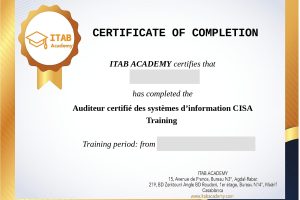Maximizing Business Success through Digital Marketing Strategies
In today’s hyper-connected world, digital marketing has become indispensable for businesses looking to reach and engage their target audience effectively. With the right strategies and tactics, businesses can leverage digital channels to increase brand visibility, drive customer engagement, and boost sales. In this article, we’ll explore how businesses can maximize their success through digital marketing initiatives, focusing on key strategies and best practices.
**Understanding the Digital Marketing Landscape**
Digital marketing encompasses a wide range of tactics and channels, including social media, search engine optimization (SEO), email marketing, content marketing, and paid advertising. Each of these channels offers unique opportunities for businesses to connect with their audience and achieve their marketing objectives. Understanding the strengths and limitations of each channel is essential for developing a holistic digital marketing strategy that delivers results.
**Key Strategies for Business Marketing in the Digital Age**
1. **Targeted Audience Segmentation**: One of the key advantages of digital marketing is the ability to target specific audience segments with personalized messaging. Businesses should invest time in understanding their target audience’s demographics, interests, and behaviors, and segment their audience accordingly. By delivering tailored content and offers to different audience segments, businesses can increase relevance and engagement.
2. **Content Marketing Excellence**: Content is at the heart of digital marketing, serving as the foundation for building brand awareness, establishing thought leadership, and driving customer engagement. Businesses should invest in creating high-quality, relevant content that resonates with their target audience. From blog posts and videos to infographics and eBooks, businesses should leverage a variety of content formats to appeal to different audience preferences.
3. **Search Engine Optimization (SEO)**: SEO plays a critical role in driving organic traffic to a business’s website and improving its visibility in search engine results pages (SERPs). Businesses should optimize their website for relevant keywords, create valuable content that answers user queries, and build high-quality backlinks to improve their search engine rankings. Regular monitoring and optimization of SEO performance are essential for maintaining visibility in competitive search landscapes.
4. **Social Media Engagement**: Social media platforms offer a powerful way for businesses to connect with their audience, build relationships, and drive engagement. Businesses should identify the social media channels where their target audience is most active and create compelling content that encourages interaction. From posting engaging updates and responding to customer inquiries to running targeted ad campaigns, businesses can leverage social media to amplify their brand message and foster community engagement.
5. **Data-Driven Decision Making**: Data is a valuable asset in digital marketing, providing insights into audience behavior, campaign performance, and market trends. Businesses should leverage analytics tools to track key metrics such as website traffic, conversion rates, and social media engagement. By analyzing this data, businesses can identify areas for improvement, optimize their marketing efforts, and make informed decisions to drive better results.
**Best Practices for Effective Business Marketing in the Digital Age**
– **Consistency and Persistence**: Building a strong online presence takes time and consistent effort. Businesses should maintain a regular posting schedule across digital channels and stay persistent in their marketing efforts, even in the face of challenges or setbacks.
– **Experimentation and Innovation**: The digital landscape is constantly evolving, and businesses should be willing to experiment with new strategies and tactics to stay ahead of the curve. Whether it’s trying out new ad formats, testing different messaging strategies, or exploring emerging platforms, businesses should embrace a culture of innovation and adaptability.
– **Customer-Centric Approach**: At the core of successful digital marketing lies a deep understanding of the customer journey and a commitment to delivering value at every touchpoint. Businesses should prioritize customer needs and preferences, listen to feedback, and continuously strive to enhance the customer experience.
– **Integration and Alignment**: Digital marketing efforts should be integrated with broader business objectives and aligned with overall marketing strategies. By coordinating efforts across departments and channels, businesses can ensure a cohesive brand message and maximize the impact of their marketing initiatives.
In conclusion, digital marketing offers businesses unprecedented opportunities to connect with their audience, drive engagement, and achieve their marketing objectives. By implementing targeted strategies, leveraging the power of data, and staying abreast of industry trends, businesses can maximize their success in the digital age and stay ahead of the competition.




